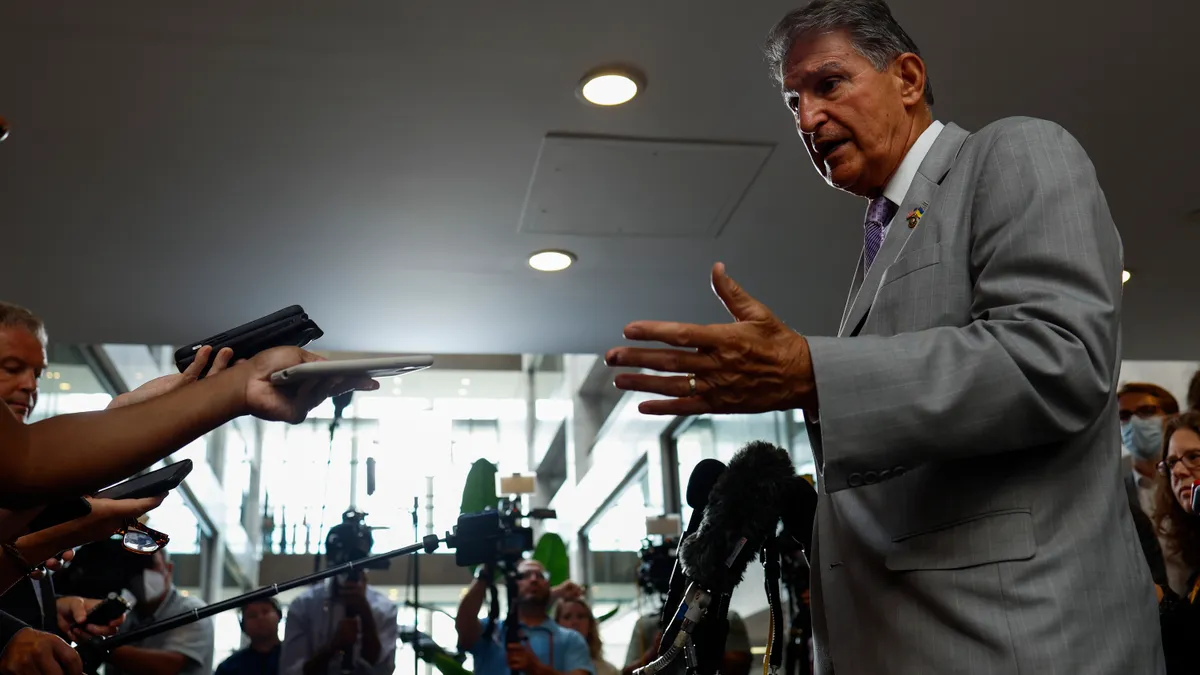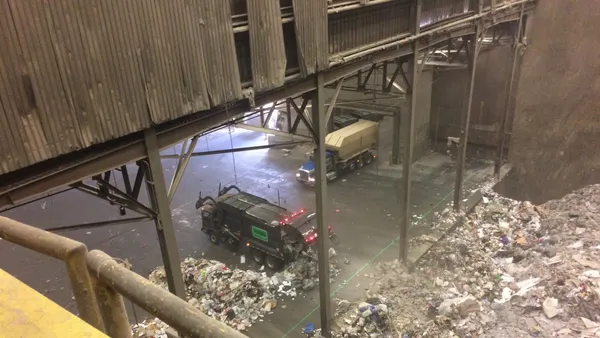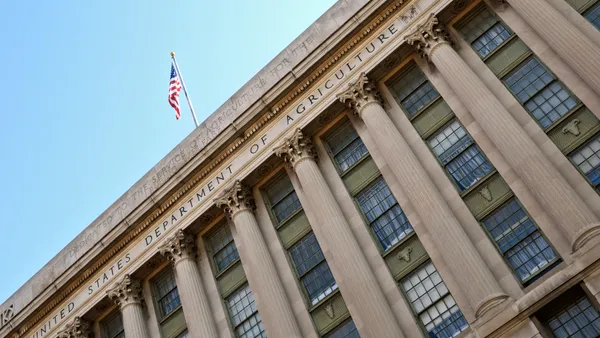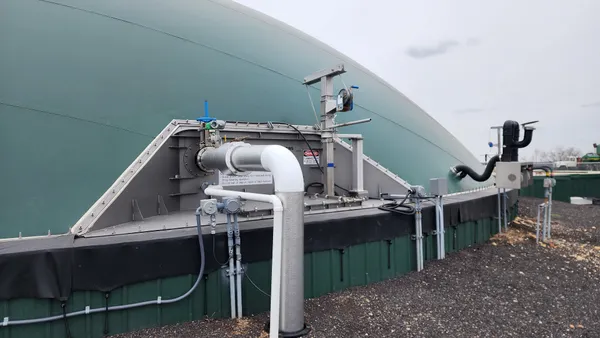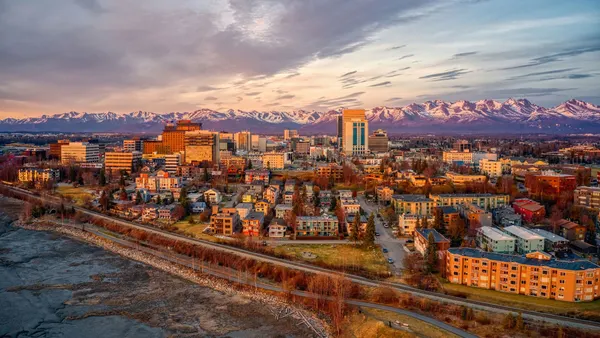Dive Brief:
- Waste and biogas industry representatives say they are cautiously optimistic that the Inflation Reduction Act, the high-profile budget reconciliation bill, will help advance business opportunities and expand access to tax credits for biogas-producing entities like landfills and anaerobic digesters.
- The draft bill would expand a renewable energy investment tax credit to include certain biogas operations that begin construction before 2025. It also calls for extending an alternative fuel tax credit that expired last year and bolstering credit rates for a carbon sequestration incentive that could apply to waste projects.
- The National Waste & Recycling Association says the primary way to fund the bill, a 15% corporate tax, will hurt business and undo some of the gains from the bill’s other tax credits.
Dive Insight:
Senate Democrats see the Inflation Reduction Act as a key method for advancing initiatives to fight climate change and reduce carbon emissions roughly 40% by 2030. Naming biogas as part of the solution is seen as a win for the industry.
The bill, introduced July 27 and backed by Senate Majority Leader Chuck Schumer, D-N.Y., and Sen. Joe Manchin, D-W.Va., calls for an estimated $369 billion in overall energy and climate spending over 10 years. It does not include some of the waste and recycling provisions from the previous Build Back Better bill, which failed to gain traction after Manchin said last year he would not support it.
The bill “demonstrates that policymakers are starting to understand the vital role biogas plays as Americans become less dependent on fossil fuels,” said Bernard Sheff, board chairman of the American Biogas Council, in an email.
One of the bill’s most notable provisions for the waste industry is the extension of the Section 48 energy investment tax credit to now include biogas. That credit, which previously only extended the ITC to renewable energy sources such as solar and wind, would now also cover “qualified biogas properties” and qualified cleaning and conditioning equipment that start construction before 2025, according to the bill. The RNG Coalition and the American Biogas Council are among the provision’s supporters.
The tax credit expansion “is a major step in the right direction to give what our industry considers parity with others in the renewables industry,” said Maureen Walsh, ABC’s director of federal policy.
Sam Wade, RNG Coalition’s director of public policy, pointed to the bill’s extension of the alternative fuel credit as another positive step. The credit, which expired last year, would be extended instead through the end of 2024.
During WM’s earnings call last week, Chief Financial Officer Devina Rankin said the company “remains optimistic” that the alternative fuel tax credits will be renewed for 2022, and expects it would receive about a $55 million benefit from the credits this year. The company, which has a large fleet of compressed natural gas vehicles, also lobbied for the credit’s extension when it was included in the Build Back Better Act.
The bill also contains a sustainable aviation fuel credit provision. Jim Riley, NWRA’s senior vice president of government affairs, said it may not yet have a direct application to landfill operators but could spell a future business opportunity to partner with the aviation industry to sell fuel derived from landfill gas. “A lot of this bill is forward-looking into what opportunities could emerge in the future,” he said.
The bill draft also includes a provision changing credit rates under the 45Q carbon sequestration tax credit, meant for the capture of carbon dioxide. Wade said a higher rate could help some biogas producers to invest in projects to capture CO2 for productive use instead of venting it. Some feel the current 45Q rates are too low to incentivize such projects, he said.
Riley stopped short of giving a full-throated endorsement of the bill's tax credits, but said the organization “could support” provisions that bolster day-to-day business.
However, NWRA does take a strong stance against the bill’s 15% corporate minimum tax, a key method for paying for the bill. Riley said the tax would “potentially be very harmful to some of our members” because the tax could divert funding away from businesses’ ability to invest in new equipment and services. NWRA is taking a closer look at the bill to see how the tax could specifically affect member companies such as equipment manufacturers or landfill operators, he said.
The Inflation Reduction Act still has a long road ahead in order to pass, and both Walsh and Riley worry that the bill’s 700-plus-page size could slow down passage. Walsh said ABC is “cautiously optimistic,” but noted that biogas tax credit provisions were previously included in the draft of the Build Back Better Act and numerous bills from previous years that did not come to fruition.
“We’ve seen this bill clear difficult hurdles, but nobody knows what’s in the final product until it’s passed,” she said.



